Ex-CIA chief: Donald Trump worked with Russians, now he’s desperate
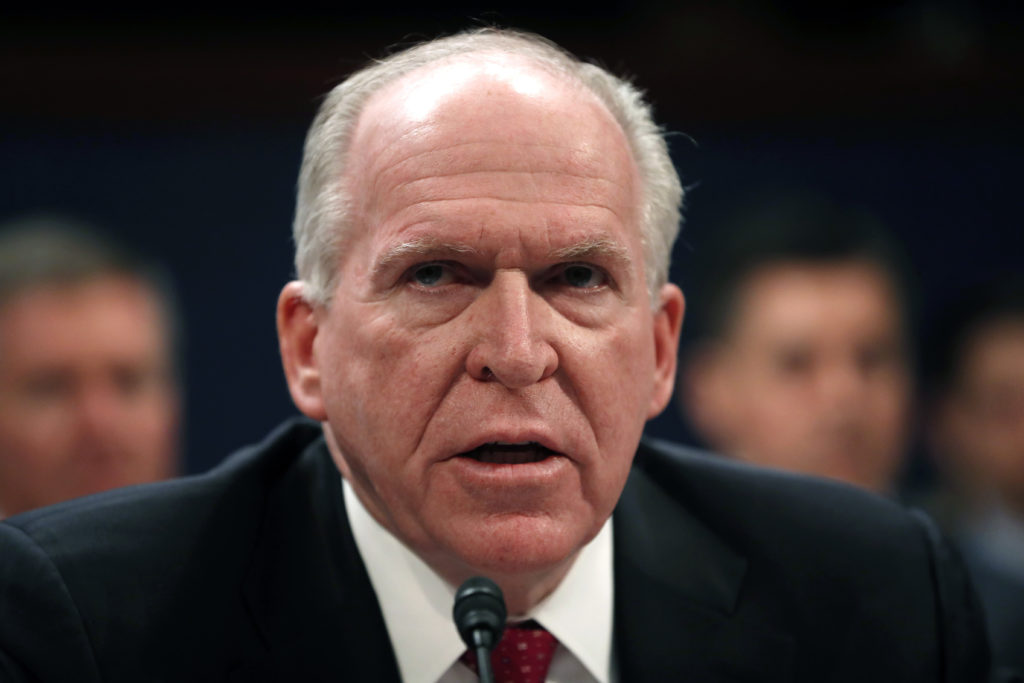
Former CIA Director John Brennan said Thursday that President Donald Trump yanked his security clearance because his campaign colluded with the Russians to sway the 2016 election and is now desperate to end the special counsel’s investigation. In an opinion piece in The New York Times, Brennan cites press reports and Trump’s own goading of Russia during the campaign to find Democrat Hillary Clinton‘s missing emails. Trump himself drew a direct connection between the revocation of Brennan’s clearance and the Russia probe, telling The Wall Street Journal the investigation is a “sham,” and “these people led it!” “So I think it’s something that had to be done,” Trump said. Brennan wrote that Trump’s claims of no collusion with Russia are “hogwash” and that the only question remaining is whether the collusion amounts to a “constituted criminally liable conspiracy.” “Trump clearly has become more desperate to protect himself and those close to him, which is why he made the politically motivated decision to revoke my security clearance in an attempt to scare into silence others who might dare to challenge him,” he wrote. Brennan’s loss of a security clearance was an unprecedented act of retribution against a vocal critic and politicizes the federal government’s security clearance process. Former CIA directors and other top national security officials are typically allowed to keep their clearances, at least for some period, so they can be in a position to advise their successors and to hold certain jobs. Trump said Wednesday he is reviewing the security clearances of several other former top intelligence and law enforcement officials, including former FBI Director James Comey. All are critics of the president or are people whom Trump appears to believe are against him. Democrats called it an “enemies list,” a reference to the Nixon White House, which kept a list of President Richard Nixon‘s political opponents to be targeted with punitive measures. There was no reference to the Russia probe in a White House statement Wednesday in which Trump denounced Brennan’s criticism of him and spoke anxiously of “the risks posed by his erratic conduct and behavior.” The president said he was fulfilling his “constitutional responsibility to protect the nation’s classified information.” Trump, his statement read by his press secretary, accused Brennan of having “leveraged his status as a former high-ranking official with access to highly sensitive information to make a series of unfounded and outrageous allegations, wild outbursts on the internet and television about this administration.” “Mr. Brennan’s lying and recent conduct characterized by increasingly frenzied commentary is wholly inconsistent with access to the nations’ most closely held secrets,” Trump said. In the Journal interview, Trump said he was prepared to yank Brennan’s clearance last week but that it was too “hectic.” The president was on an extended working vacation at his New Jersey golf club last week. Brennan has indeed been deeply critical of Trump’s conduct, calling his performance at a press conference last month with Russian President Vladimir Putin in Finland “nothing short of treasonous.” Brennan said Wednesday that he had not heard from the CIA or the Office of the Director of National Intelligence that his security clearance was being revoked, but learned it when the White House announced it. There is no requirement that a president has to notify top intelligence officials of his plan to revoke a security clearance. Trump’s statement said the Brennan issue raises larger questions about the practice of allowing former officials to maintain their security clearances, and said that others officials’ were under review. They include Comey; James Clapper, the former director of national intelligence; former CIA Director Michael Hayden; former national security adviser Susan Rice; and Andrew McCabe, who served as Trump’s deputy FBI director until he was fired in March. Also on the list: fired FBI agent Peter Strzok, who was removed from the Russia investigation over anti-Trump text messages; former FBI lawyer Lisa Page, with whom Strzok exchanged messages; and senior Justice Department official Bruce Ohr, whom Trump recently accused on Twitter of “helping disgraced Christopher Steele ‘find dirt on Trump.’” Ohr was friends with Steele, the former British intelligence officer commissioned by an American political research firm to explore Trump’s alleged ties with the Russian government. He is the only current government employee on the list. At least two of the former officials, Comey and McCabe, do not currently have security clearances, and none of the eight receive intelligence briefings. Trump’s concern apparently is that their former status gives special weight to their statements, both to Americans and foreign foes. Former intelligence officials said Trump has moved from threatening to revoke security clearances of former intelligence officials who have not been involved in the Russia investigation to former officials who did work on the probe. They spoke on condition of anonymity to share private conversations Trump has had with people who have worked in the field. The CIA referred questions to the White House. Clapper, reacting on CNN, called Trump’s actions “unprecedented,” but said he didn’t plan to stop speaking out. Sarah Huckabee Sanders, Trump’s press secretary, insisted the White House wasn’t targeting only Trump critics. But Trump did not order a review of the clearance held by former national security adviser Mike Flynn, who was fired from the White House for lying to Vice President Mike Pence about his conversations with Russian officials and later pleaded guilty to lying to the FBI. Democrats, and even some Republicans, lined up to denounce the president’s move, with House Minority Leader Nancy Pelosi, D-Calif., slamming it as a “stunning abuse of power.” And California Rep. Adam Schiff, the ranking Democrat on the House intelligence committee, tweeted, “An enemies list is ugly, undemocratic and un-American.” Several Republicans also weighed in, with Sen. Bob Corker, R-Tenn., saying, “Unless there’s something tangible that I’m unaware of, it just, as I’ve said before, feels like a banana republic kind of thing.” Republished with permission from the Associated Press.
ALGOP Chair Terry Lathan slams Doug Jones over opposition of CIA nominee
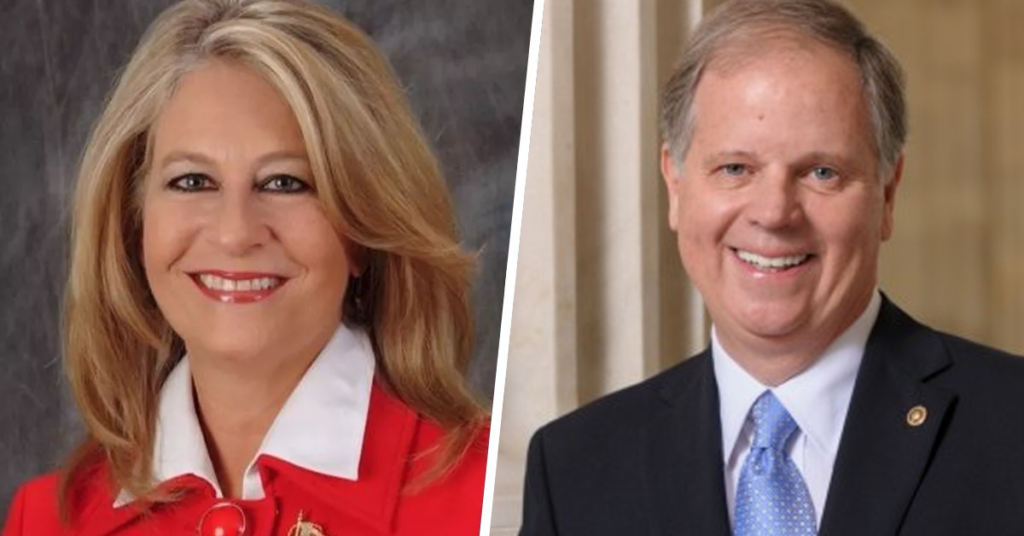
On Tuesday, Alabama’s newly elected junior senator, Democrat Doug Jones cast his vote again Gina Haspel to be confirmed as Director of the Central Intelligence Agency (CIA). Now, the Chairman of the Alabama Republican Party is calling him out for opposing the confirmation. Lathan says Jones “is choosing to put partisanship over our nation’s security.” And that “Alabama voters will remember this when they head to the polls to choose their next U.S. Senator in 2020.” Read Lathan’s full statement below: Alabama United States Senator Doug Jones’ decision to deny a vote to confirm Gina Haspel, a highly qualified CIA veteran with three decades of experience, is shameful at best. The recipient of several prestigious awards (including the prestigious George H.W. Bush Award for Excellence in Counterterrorism) and positive recommendations by three former CIA directors, Ms. Haspel is more than deserving of a confirmation by the U.S Senate. Senator Jones says he will not vote to confirm Ms. Haspel because of her stance on the agency’s former torture policy which she denounced as wrong and as a practice that will not be continued. Several Democrats and the Senate Intelligence Committee have approved Gina Haspel for a confirmation as CIA director. With this much steady support for the nominee, what valid reason does Senator Jones have to not cast a yes vote for this confirmation? In voting no to confirm Gina Haspel, Senator Jones is choosing to put partisanship over our nation’s security. Alabama voters will remember this when they head to the polls to choose their next U.S. Senator in 2020. Alabama and President Trump vow to put America First. This decision by Senator Jones simply does not do that.
CIA nominee Gina Haspel wins Senate panel backing, confirmation expected
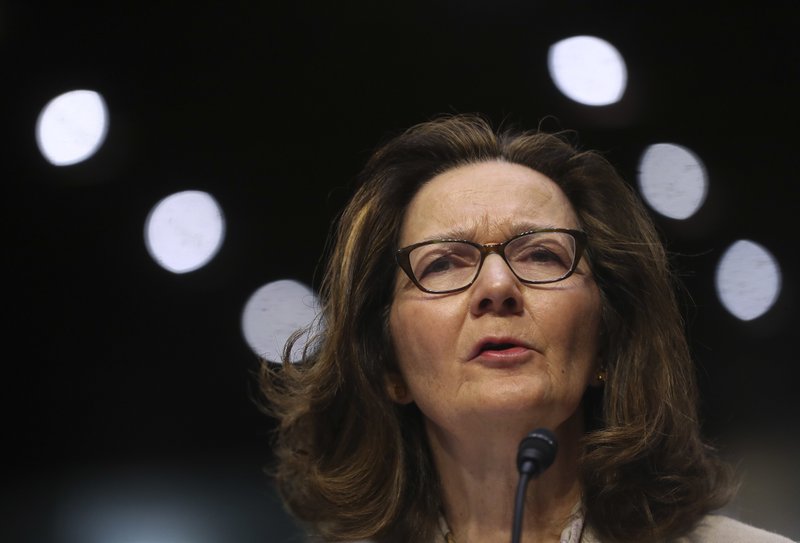
Gina Haspel, President Donald Trump’s nominee to head the CIA, won the backing of the Senate intelligence committee on Wednesday, paving the way for her expected confirmation to lead the spy agency. The panel voted 10-5 to advise the full Senate to confirm Haspel, whose nomination has renewed debate over the harsh interrogation program the CIA conducted on terror suspects after 9/11. Haspel, who supervised a CIA detention site in Thailand in 2002, has told Congress that the agency shouldn’t have used those harsh tactics and has vowed not to restart them. The committee released the result of the vote, conducted in closed session, without giving further details. However, all eight Republicans and two of the seven Democrats on the panel earlier expressed support for Haspel. The remaining five Democrats had announced their opposition. The confirmation vote by the full Senate could occur before the end of the week. “Gina Haspel is the most qualified person the president could choose to lead the CIA and the most prepared nominee in the 70 year history of the agency,” said Chairman Richard Burr, R-N.C. “She has acted morally, ethically, and legally, over a distinguished 30-year career and is the right person to lead the agency into an uncertain and challenging future.” She also had the support of the committee’s top-ranking Democrat, Sen. Mark Warner of Virginia. “As director of the CIA, Gina Haspel will be the first operations officer in more than five decades to lead the agency,” Warner said. “Most importantly, I believe she is someone who can and will stand up to the president if ordered to do something illegal or immoral — like a return to torture,” he said. Sen. Ron Wyden, D-Ore., who has staunchly opposed Haspel, called her nomination one of the most “self-serving abuses of power in recent history” because Haspel, as acting CIA director, was in a decision-making role in determining what parts of her undercover career were declassified. He likened that to a “stacking of the deck” and said he would continue to seek the declassification of details about her past activities at the agency. Warner said he would continue to seek the declassification of a Justice Department report about the destruction of more than 90 videotapes showing the harsh interrogation of one terror suspect. No charges were filed as a result of that report. Haspel drafted a cable that ordered the tapes destroyed, but the cable was sent by her boss, Jose Rodriguez, who has repeatedly taken responsibility for the order. The interrogation program became one of the darkest chapters of the CIA’s history and tainted America’s image worldwide after the Sept. 11 attacks. Haspel has not disclosed any details of what she did in connection with the program or say whether she thought it had been immoral. But during her confirmation hearing last week, she said she doesn’t believe torture works as an interrogation technique and that her “strong moral compass” would prevent her from carrying out any presidential order she found objectionable. “With the benefit of hindsight and my experience as a senior agency leader, the enhanced interrogation program is not one the CIA should have undertaken,” according to Haspel’s written answers to some 60 additional questions from lawmakers. Bolstering the comments she made during her hearing, Haspel wrote, “I do not support use of enhanced interrogation techniques for any purpose.” Attention now turns to the vote by the full Senate, which has yet to be scheduled. Haspel has already won the backing of several Democrats. They include Mark Warner of Virginia, Joe Manchin of West Virginia, Joe Donnelley of Indiana, Bill Nelson of Florida and Heidi Heitkamp of North Dakota. The only Senate Republicans who are not expected to vote for her are Kentucky’s Rand Paul and Arizona’s John McCain, who is battling cancer and is not expected to be present for the ballot. Haspel’s opponents, however, continue to weigh into the debate. “Ms. Haspel is cynically trying to offer mere words in an attempt to win votes to support her confirmation,” said Gen. Charles Krulak, former commandant of the Marine Corps. “The definition of moral courage is doing the right thing at the right time for the right reasons when no one’s looking. Gina Haspel failed that test,” said Krulak, who organized a letter signed by more than 100 retired generals and admirals expressing concern over her nomination. Daphne Eviatar with Amnesty International on Tuesday called Haspel’s nomination an “affront to human rights.” “This country has not held any officials accountable for the use of torture, so it’s even more outrageous that the government is considering someone to the chief intelligence position in spite of her alleged participation in that clearly illegal and immoral activity,” she said. Republished with permission from the Associated Press.
Second Democratic senator publicly backing Donald Trump’s CIA pick
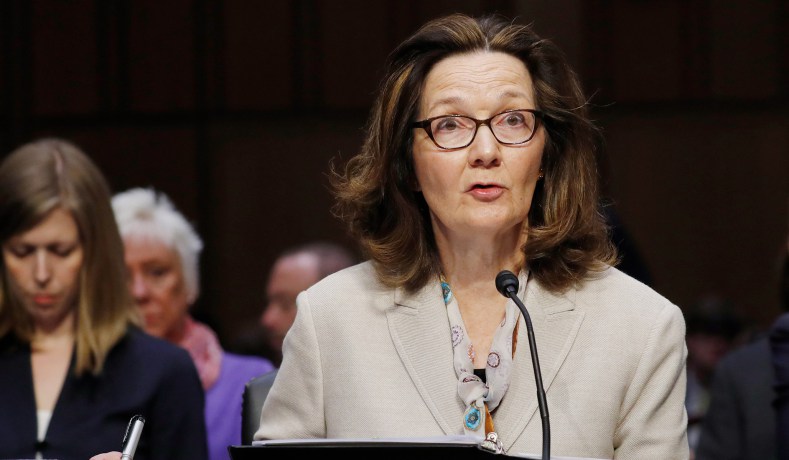
A second Democratic senator has announced his support for President Donald Trump’s CIA nominee. Joe Donnelly of Indiana says in a statement Saturday that he made his decision after “a tough, frank and extensive discussion” with Gina Haspel, the spy agency’s acting director. The other Democrat who’s come out for Haspel is West Virginia’s Joe Manchin. Both Democrats are considered to be among the most vulnerable Senate incumbents in the November election. So far two Republicans have announced their opposition to Haspel: Kentucky’s Rand Paul and Arizona’s John McCain, who’s battling cancer and isn’t expected to be present for the voting. Supporters are pushing for votes by the Senate intelligence committee and the full Senate before the Senate’s Memorial Day break. The GOP holds a 51-49 edge, and Vice President Mike Pence can break a possible tie. Haspel has run into criticism because she was once involved in the CIA’s harsh interrogation program. “I believe that she has learned from the past, and that the CIA under her leadership can help our country confront serious international threats and challenges,” Donnelly says in the statement. Donnelly came under attack from Trump at a rally in Indiana on Thursday, two days after the state’s primary election determined that his Republican opponent in November will be former Indiana lawmaker Mike Braun. Trump, who was joined at the rally by Vice President Mike Pence, a former Indiana governor, urged GOP voters to mobilize and prevent Democrats from regaining control of Congress. The president called Donnelly “Sleepin’ Joe” and criticized the senator for opposing his tax plan and attempt to end the Affordable Care Act. Donnelly responded by saying “problems only get solved when you roll up your sleeves and put in the hard work,” and his campaign said he had voted with Trump 62 percent of the time. Republished with permission from the Associated Press.
CIA nominee says ‘tough lessons’ learned from interrogation
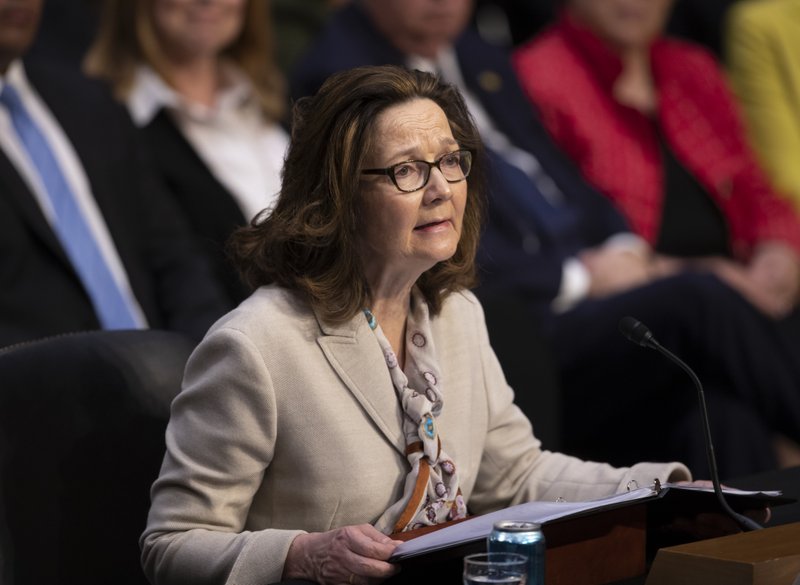
President Donald Trump’s nominee to be the next CIA director said Wednesday the spy agency learned “tough lessons” from its use of harsh detention and interrogation tactics on terror suspects after 9/11 and that if confirmed, she would not permit the CIA to restart such a program. “CIA has learned some tough lessons, especially when asked to tackle missions that fall outside our expertise,” acting CIA director Gina Haspel told the Senate intelligence committee. “For me, there is no better example of implementing lessons learned than what the agency took away from the detention and interrogation program.” “It is important to recall the context of those challenging times immediately following 9/11,” she said. “Having served in that tumultuous time, I can offer you my personal commitment, clearly and without reservation, that under my leadership, CIA will not restart such a detention and interrogation program.” Haspel’s promise could put her at odds with Trump, who spoke during the campaign about toughening the U.S. approach to fighting extremists and vowed to authorize waterboarding and a “hell of a lot worse.” Before the confirmation hearing got underway, protesters in the room shouted anti-torture slogans. Committee chairman Sen. Richard Burr, R-N.C., said those who disrupt the hearing will be escorted out. He said the hearing is not about the now-defunct CIA interrogation program, but about who should lead the agency in the future as it faces current threats to U.S. national security. The sound of dozens of clicking cameras greeted Haspel as she entered the room and shook hands with members of the committee. In her opening remarks, she acknowledged that the American public wants to know her views on the CIA’s now-defunct detention and interrogation program. Haspel said that being in the public spotlight is new for her because she spent more than 30 years “in the shadows” working undercover and acquiring secret information from dead drops and meetings in dusty back alleys of third-world capitals. She portrayed herself as a “typical middle-class American” with a “strong sense of right and wrong” who just doesn’t happen to have any social media accounts. She said she was born in Kentucky and while her family has deep roots there, she grew up as an Air Force “brat,” following her father to postings all over the world. Haspel emphasized her experience, saying, “I know CIA like the back of my hand.” “I joined CIA in 1985 as a case officer in the clandestine service,” she said. “From my first days in training, I had a knack for the nuts and bolts of my profession. I excelled in finding and acquiring secret information.” Haspel’s fate hinges on how well she fields tough questions from senators who want details of her time running a covert detention site where terror suspects were waterboarded, a tactic that simulates drowning, and seek an explanation for why she wanted videos of the sessions destroyed. Haspel’s critics outside Congress have stepped up their opposition, arguing that anyone who willingly participated in one of the CIA’s darkest chapters should not head the spy agency. They argue that having Haspel as the face of U.S. intelligence will undercut America’s effort to champion human rights. Democrats have complained that the CIA has failed to declassify enough information on her career, leaving the public in the dark about the person who might end up leading the CIA. Sen. Mark Warner of Virginia, the ranking Democrat on the committee, said that Haspel is among the most experienced people to be nominated to serve as CIA director. But, he said, many people, including him, have questions about the message the Senate would send by confirming someone for this position who served as a supervisor in the CIA Counterterrorism Center during the time of the detention and interrogation program. Sen. Ron Wyden, D-Ore., and three of his Democratic colleagues recently wrote a letter to Dan Coats, the director of national intelligence, asking that his office, which oversees all U.S. intelligence agencies, declassify the documents. He cited a provision of an executive order that prohibits information from being classified “in order to conceal violations of law, inefficiency or administrative error” or “to prevent embarrassment to a person, organization or agency.” Wyden warned it would set a damaging precedent “if this administration is allowed to get away with what I consider to be a secret confirmation” for the most visible official in U.S. intelligence. In her defense, Haspel said that in retrospect it is clear, as the Senate committee’s 2014 report on the program concluded, that the “CIA was not prepared to conduct a detention and interrogation program.” If confirmed, Haspel said she will follow the legal framework the U.S. has since imposed that bans any tactic not spelled out in the Army Field Manual. Under U.S. law, all government employees, including intelligence agents, must abide by Army guidelines for interrogating prisoners — guidelines that don’t permit waterboarding. Warner said he appreciates that Haspel has acknowledged the history of the program and that she is committed to upholding the law, but “it is not enough.” He said “no one should get credit simply for agreeing to follow the law.” Haspel didn’t mention the destruction of the tapes in her opening remarks, but last month, the CIA released a memo showing Haspel was cleared of wrongdoing in destroying the tapes. The memo, written in 2011, summarizes a disciplinary review conducted by then-CIA Deputy Director Mike Morell. He said that while Haspel was one of the two officers “directly involved in the decision to destroy the tapes,” he “found no fault” with what she did. Haspel said she would put more intelligence officers in the field abroad and says there has been an outpouring of support from young women at the CIA who hope she becomes the first female CIA director. “It is not my way to trumpet the fact that I am a woman up for the top job, but I would be remiss in not remarking on it — not least
Donald Trump defends CIA nominee, says she is ‘tough on terror’
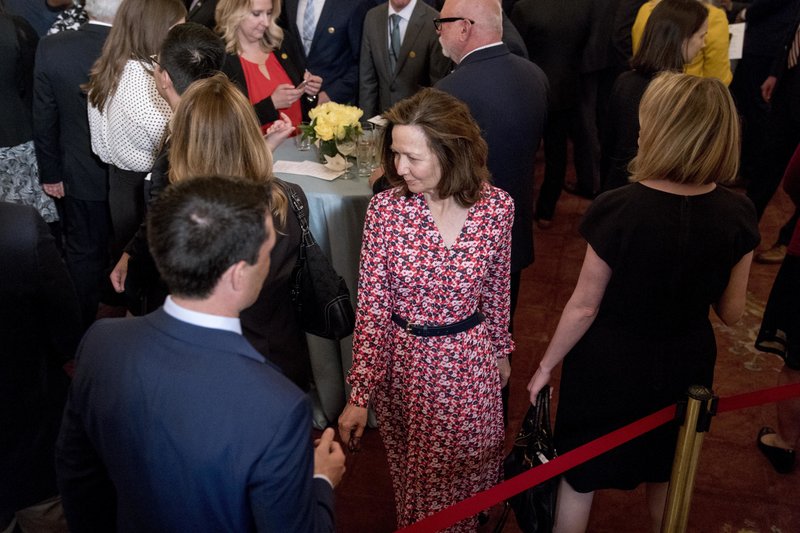
President Donald Trump on Monday defended Gina Haspel, his nominee to head the Central Intelligence Agency, dismissing debate over her involvement in a harsh interrogation program and arguing Democrats want her out because she “is too tough on terror.” Trump said on Twitter that Haspel has “come under fire because she was too tough on Terrorists.” He added that “in these very dangerous times, we have the most qualified person, a woman, who Democrats want OUT because she is too tough on terror. Win Gina!” Haspel offered to withdraw her nomination, two senior administration officials said Sunday, amid concerns that a debate over a harsh interrogation program would tarnish her reputation and that of the CIA. White House aides on Friday sought out additional details about Haspel’s involvement in the CIA’s now-defunct program of detaining and brutally interrogating terror suspects after 9/11 as they prepared her for Wednesday’s confirmation hearing. This is when she offered to withdraw, the officials said. They said Haspel, who is the acting director of the CIA, was reassured that her nomination was still on track and will not withdraw. The officials spoke on the condition of anonymity to discuss internal deliberations. The news was first reported Sunday by The Washington Post. Haspel, who would be the first woman to lead the CIA, is the first career operations officer to be nominated to lead the agency in decades. She served almost entirely undercover and much of her record is classified. Democrats say she should be disqualified because she was the chief of base at a covert detention site in Thailand where two terrorism suspects were subjected to waterboarding, a technique that simulates drowning. She has told lawmakers in recent weeks that she would stand firm against any effort to restart the brutal detention and interrogation program, administration officials told The Associated Press on Friday. She is expected to reiterate that publicly this week. Haspel, one official said, was wary of suffering the same fate as failed veterans affairs nominee Ronny Jackson and of dredging up the CIA’s troubled past. She took over last month as the acting CIA director after the previous director, Mike Pompeo, was sworn in as secretary of state. After Haspel’s offer to withdraw, White House aides worked to reassure her that she had the president’s support. As with other nominations, this one hit a roadblock but is back on track, said a third administration official familiar with the effort to get her confirmed. Haspel’s conversations with senators continue ahead of Wednesday’s confirmation hearing at the Senate Intelligence Committee and a later full vote in the Senate. In addition, the CIA has sent materials to the Senate, some classified, that the lawmakers can read to better understand not only her work in the Counterterrorism Center, which oversaw the harsh interrogation program, but also other aspects of her 33-year career, including more than 30 years undercover. She has received robust backing from former intelligence, diplomatic, military and national security officials, who praise her extensive intelligence career. On the opposing side are groups such as the American Civil Liberties Union, which says she should have stood up against the interrogation practices then. Raj Shah, a White House spokesman, on Sunday called Haspel a highly qualified nominee. “Her nomination will not be derailed by partisan critics who side with the ACLU over the CIA on how to keep the American people safe,” he said. Republished with permission from the Associated Press.
Mike Pompeo facing rare opposition from Senate panel
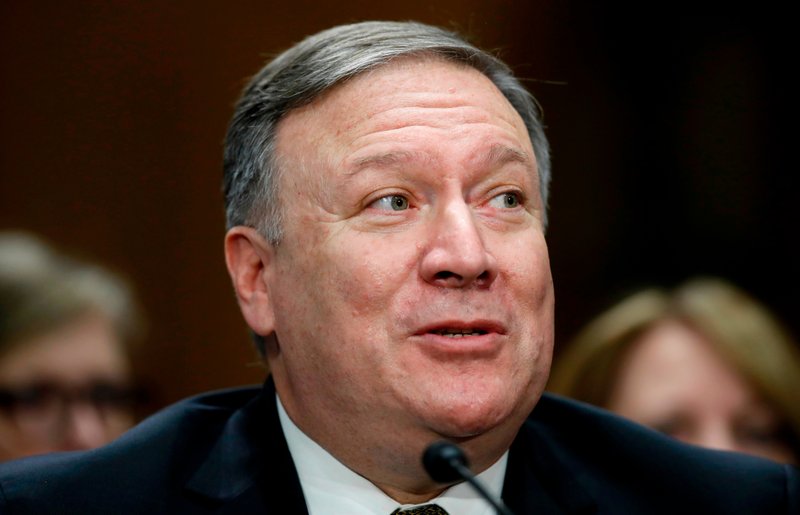
President Donald Trump’s nominee for secretary of state, Mike Pompeo, is facing serious opposition before the Senate Foreign Relations Committee, which may not have enough votes to recommend him for confirmation because all Democrats, and at least one Republican, have said they will oppose him. The full Senate is still expected to consider Pompeo’s nomination later this week. But the rare rebuke expected from the panel Monday, even after Pompeo’s recent visit with North Korean leader Kim Jong Un, would be the first time in years that a nominee for the high-level Cabinet position did not receive a favorable committee vote. Sen. Bob Corker, R-Tenn., the chairman of the committee, blamed partisan politics for opposition to Pompeo, now the CIA director, saying Pompeo is just as qualified as past secretaries of state nominees Hillary Clinton or John Kerry, both of whom received overwhelming support. “We are in an era where somebody like this, who is qualified, unfortunately, is likely to be voted out without recommendation or with a negative recommendation,” Corker said Sunday on “State of the Union” on CNN. “It’s just sad that our nation has devolved politically to this point.” Pompeo’s confirmation before the full Senate now hangs in balance, with the votes of just a handful of senators determining whether he becomes the nation’s top diplomat after Trump fired Rex Tillerson last month. Key Democrats, including some who had voted for Pompeo as CIA director last year, are peeling away, and Republican Sen. Rand Paul of Kentucky remains opposed, despite personal overtures from the president. Pressure is mounting on senators from both sides. White House allies are unloading ad campaigns against Democrats from Trump-won states, including North Dakota, Indiana and Missouri, to vote for the president’s nominee. But progressive groups are pounding senators’ offices in opposition to Pompeo’s hawkish foreign policy views and negative comments about gay marriage and Muslims. As soon as Sen. Heidi Heitkamp, D-N.D., announced her support last week, one group called on her to switch. “I don’t agree with every position he’s taken or every word he has spoken,” Sen. Susan Collins, R-Maine, said Sunday on “Meet the Press” on NBC. “But I believe he has an extensive knowledge of world affairs that has been enhanced by his time at the CIA.” Sen. Maggie Hassan, D-N.H., who met with the nominee last week, “has concerns about Mr. Pompeo’s nomination to serve as secretary of state,” said spokesperson Ricki Eshman. The senator “is reviewing his record before making a final decision.” In the committee, the opposition has been building ahead of Monday’s session. Sen. Chris Coons, D-Del., who was among the last Democrats on the panel to announce his no vote, said he’s is concerned that Pompeo “will embolden, rather than moderate or restrain” Trump’s “most belligerent and dangerous instincts.” “I do not make this decision lightly or without reservations,” Coons said in a statement Friday. “However, I remain concerned that Director Pompeo will not challenge the President in critical moments. On vital decisions facing our country, Director Pompeo seems less concerned with rule of law and partnership with our allies and more inclined to emphasize unilateral action and the use of force.” Rather than allow an unfavorable vote on the panel, where Republicans have a one-seat majority, senators could choose not to issue a recommendation if Pompeo cannot find enough backing. The committee action won’t necessarily stall Pompeo’s confirmation before the full Senate, but it would be an unusual setback not seen since the panel took a pass on John Bolton, President George W. Bush’s pick for ambassador to the United Nations. Sen. Tom Cotton, R-Ark., who has been among Pompeo’s most vocal champions in the Senate, lambasted his colleagues ahead of voting. “Democrats, especially on the Foreign Relations Committee, are really engaged in shameful political behavior,” Cotton said Sunday on CBS’ “Face the Nation.” But several Democratic senators who supported Pompeo for CIA director say Pompeo’s views are not reflective of those they want in the top diplomat. Republished with the permission of the Associated Press.
Senate panel divided over Mike Pompeo for secretary of state
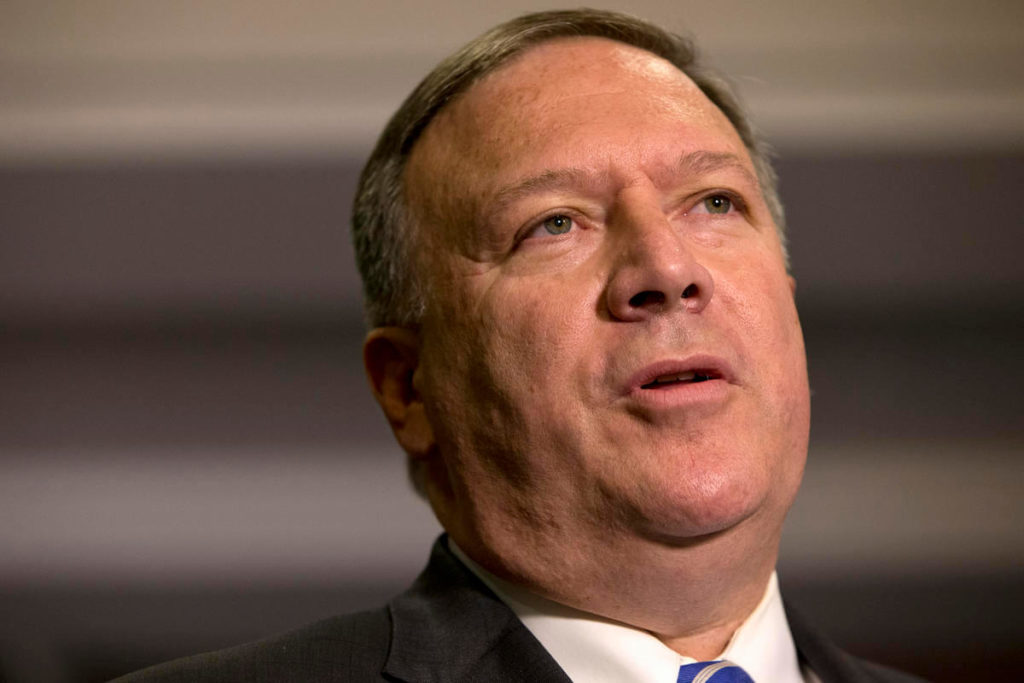
President Donald Trump’s pick for secretary of state, CIA Director Mike Pompeo, is facing so much opposition from Democrats on the Senate Foreign Relations Committee that the panel could be forced to take the unusual step of sending the nomination to the full Senate without a favorable recommendation. Democratic Sen. Jeanne Shaheen of New Hampshire on Tuesday became the latest member of the committee to announce her opposition, and Sen. Tim Kaine, D-Va., recently said he would vote no. Both supported Pompeo as CIA director last year. Pompeo is still expected to have enough votes in the full Senate to replace Rex Tillerson, who was fired by Trump. But as support peels away, his confirmation may come down to a handful of senators. The backlash ahead of the panel’s vote is a rare rebuke for such a high-profile Cabinet pick, and sets Pompeo on a potentially uneven path for the new job. “I continue to have deep concerns regarding Mr. Pompeo’s past statements and policy views, particularly in regards to the LGBTQ community, American Muslims and women’s reproductive rights,” Shaheen said in a statement, after calling the former Kansas congressman Tuesday to tell him she would be opposed. Shaheen said Pompeo’s previous roles “are fundamentally different from that of Secretary of State, who represents American values around the world.” A sign of the important role Pompeo plays in the Trump administration: The CIA director traveled to North Korea for a secret meeting with leader Kim Jong Un, two U.S. official say. The meeting came as U.S. and North Korean officials plan a summit between Trump and Kim. The officials spoke anonymously because they were not authorized to discuss the trip publicly. Rarely has the Senate panel failed to back a nominee, and some said not since President George W. Bush nominated John Bolton as U.S. ambassador to the United Nations has the committee declined to recommend a White House pick. Republicans have a narrow Senate majority, which gives them a single-vote advantage on the panel. But with stiff opposition from Democrats — and at least one Republican, Sen. Rand Paul of Kentucky, opposed — the committee may have few other options when it convenes as soon as next week. “We’ll see,” said the committee’s chairman, Sen. Bob Corker, R-Tenn. Under Senate rules, if the nominee does not have support in the committee, the panel could report to the full Senate unfavorably, which would send a strong rebuke to the White House, or simply report without a recommendation. It also could take no action. One top committee Democrat, Sen. Ben Cardin of Maryland, said he was still reviewing his decision. Senators submitted more than 100 questions for the nominee after his initial hearing, and many are waiting for those responses. Trump initially tapped Pompeo as CIA director, one of his first Cabinet nominees in 2017, and they became close allies. But some Democrats have faced resistance for their votes, and Pompeo is having a tougher path as the nominee for secretary of state over his hawkish foreign policy views and comments about minorities, having suggested that Muslims should denounce extremism and gay people should not be able to marry. During his confirmation hearing last week, Pompeo told senators it’s unlikely he’d resign if Trump fired special counsel Robert Mueller, who is leading the investigation into Russian interference in the 2016 election. Of the more than a dozen Democrats who supported Pompeo’s nomination as CIA director in 2017, at least four, including Sen. Dianne Feinstein of California and Sen. Brian Schatz of Hawaii, now oppose his nomination for State. “The Secretary of State is a very different role than CIA director, and it’s not the kind of position you learn on the job,” Feinstein said in a statement Tuesday. “I sense a certain disdain for diplomacy in Mike Pompeo that I believe disqualifies him from being our next senior diplomat.” Senate Minority Leader Chuck Schumer, D-N.Y., who also backed Pompeo earlier, declined to say Tuesday how he would vote. Republished with the permission of the Associated Press.
Blake Dowling: WikiLeaks, Cherry Blossoms and Pandemics

WikiLeaks is at it again. They are dropping new information (unverified) on the web about the Engineering Development Group. Who are they? They are the CIA, specifically its elite hacking unit. Not too cool for national security potentially but good to know if you care about your digital privacy, or if you are an enemy of the state with something to hide. If you have never checked out the site, it is very interesting. The part that grabbed me was the tools called Cherry Blossom. This tool allows the agency to monitor internet traffic by hijacking wireless routers; this has been going on for years. To put it simply, the described the tool takes over the firmware of the router and turn it into a monitoring device. So, not only can you be tracked where you go online, but also (even worse) what you are doing, banking info, passwords, or reroute you to a malicious website and infect or steal from you. Stay off public Wi-Fi setups for this and many other reasons. Only use secure and password protected networks. Your data is up for grabs as it is, you might as well not make it easy for folks to get at it. Also, this month WikiStinks published info on another CIA project called Pandemic. Basically, this project deals with infecting a computer with malicious code and then spreading it to take over more and more machines. In high-tech lingo, Pandemic is a tool that runs as kernel shellcode that installs a file system filter driver. The driver is used to replace a file with a payload when a user on the local network accesses the file over SMB. So, the cyber wars rage on with Russia, China, the US and even those wankers in North Korea on the battlefield. As a nation, we try and stay on the forefront to defend our weapons systems, power grids and everything else, but it’s tough. As you can see, there are those that wish to expose this clandestine work to the world. It’s also a very gray space with a lot of room for interpretation. The current administration in D.C. — as well as the last one — were all about the CIA, NSA and keeping the U.S. ahead of the cyber arms race. If we fall behind in this race, we may not know until it’s too late. In the meantime, tune into Oliver Stone’s interview with Vladimir Putin, that is the face of the enemy, and we must remember it. Keep your passwords complex, stay off the dark web, have a dedicated credit card for online purchases, use a firewall wall with geo-blocking capabilities (block all IP addresses from punk nations), keep your security software current (and your beer cold) and we will see what happens. Enjoy your weekend. ___ Blake Dowling is CEO of Aegis Business Technologies, and he can be reached at dowlingb@aegisbiztech.com. P.S.: If the CIA reads this, I am on your side. Don’t tase me, bro. I did say “unverified.” 🙂
WikiLeaks reveals CIA files describing hacking tools
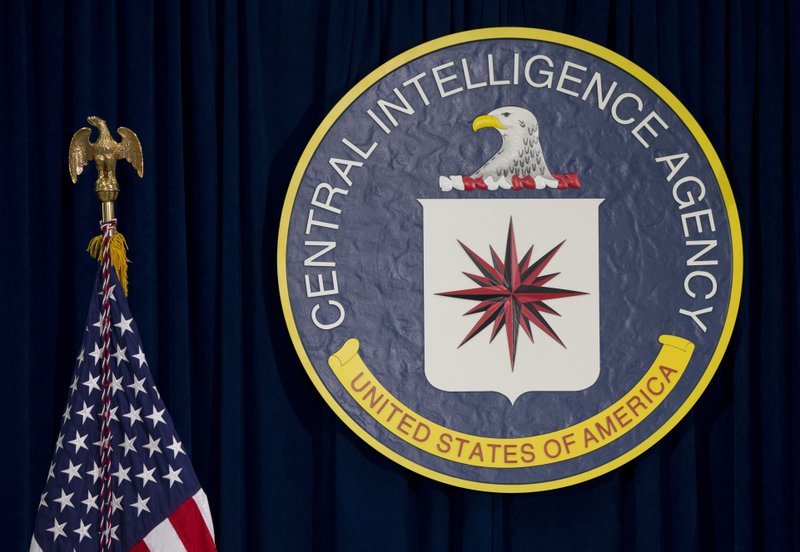
WikiLeaks published thousands of documents Tuesday described as secret files about CIA hacking tools the government employs to break into users’ computers, mobile phones and even smart TVs from companies like Apple, Google, Microsoft and Samsung. The documents describe clandestine methods for bypassing or defeating encryption, antivirus tools and other protective security features intended to keep the private information of citizens and corporations safe from prying eyes. U.S. government employees, including President Donald Trump, use many of the same products and internet services purportedly compromised by the tools. The documents describe CIA efforts — cooperating with friendly foreign governments and the U.S. National Security Agency — to subvert the world’s most popular technology platforms, including Apple’s iPhones and iPads, Google’s Android phones and the Microsoft Windows operating system for desktop computers and laptops. The documents also include discussions about compromising some internet-connected televisions to turn them into listening posts. One document discusses hacking vehicle systems, indicating the CIA’s interest in hacking modern cars with sophisticated on-board computers. WikiLeaks has a long track record of releasing top secret government documents, and experts who sifted through the material said it appeared legitimate. The chairman of the House intelligence committee, Rep. Devin Nunes, R-Calif., said he was very concerned about the release and had asked the intelligence community for more information about it. Former CIA Director Mike Hayden told MSNBC he had undertaken only a cursory review of the documents, but that if they were what they were purported to be, it would amount to a “very extensive file of the tactics, techniques, procedures, targets and other political rules” under which the CIA hacks targets. “If it is that, it would be very, very damaging,” he said. Jonathan Liu, a spokesman for the CIA, said: “We do not comment on the authenticity or content of purported intelligence documents.” White House spokesman Sean Spicer also declined comment. Missing from WikiLeaks’ trove are the actual hacking tools themselves, some of which were developed by government hackers while others were purchased from outsiders. WikiLeaks said it planned to avoid distributing tools “until a consensus emerges” on the political nature of the CIA’s program and how such software could be analyzed, disarmed and published. Tuesday’s disclosure left anxious consumers who use the products with little recourse, since repairing the software vulnerabilities in ways that might block the tools’ effectiveness is the responsibility of leading technology companies. The revelations threatened to upend confidence in an Obama-era government program, the Vulnerability Equities Process, under which federal agencies warn technology companies about weaknesses in their software so they can be quickly fixed. It was not immediately clear how WikiLeaks obtained the information, and details in the documents could not immediately be verified. WikiLeaks said the material came from “an isolated, high-security network” inside the CIA’s Center for Cyber Intelligence but didn’t say whether the files were removed by a rogue employee or whether the theft involved hacking a federal contractor working for the CIA or perhaps breaking into a staging server where such information might have been temporarily stored. “The archive appears to have been circulated among former U.S. government hackers and contractors in an unauthorized manner, one of whom has provided WikiLeaks with portions of the archive,” WikiLeaks said in a statement. Some technology firms on Tuesday said they were evaluating the information. Microsoft Corp. said it was looking into the report, while the maker of secure messaging app Signal said the purported CIA tools affected users’ actual phones and not its software design or encryption protocols. The manufacturer of the popular Telegram mobile messaging app said in a statement that manufacturers of cellphones and their operating systems, including Apple, Google and Samsung, were responsible for improving the security of their devices. It said the effort will require “many hours of work and many security updates” and assured its customers that “If the CIA is not on your back, you shouldn’t start worrying yet.” The tools described in the documents carried bizarre names, including Time Stomper, Fight Club, Jukebox, Bartender, Wild Turkey, Margarita and “RickyBobby,” a racecar-driving character in the comedy film, “Talladega Nights.” That RickyBobby tool, the documents said, was intended to plant and harvest files on computers running “newer versions of Microsoft Windows and Windows Server.” It operated “as a lightweight implant for target computers” without raising warnings from antivirus or intrusion-detection software. It took advantage of files Microsoft built into Windows since at least 10 years ago. The files include comments by CIA hackers boasting in slang language of their prowess: “You know we got the dankest Trojans and collection tools,” one reads. The documents show broad exchanges of tools and information among the CIA, NSA and other U.S. intelligence agencies, as well as intelligence services of close allies Australia, Canada, New Zealand and the United Kingdom. WikiLeaks claimed the CIA used both its Langley, Virginia, headquarters and the U.S. consulate in Frankfurt, Germany, as bases for its covert hackers. The AP found that one purported CIA hack that imitates the Domain Name System — the internet’s phone book — traced to an internet domain hosted in Germany. In an unusual move, WikiLeaks said it was withholding some secrets inside the documents. Among them, it said it had withheld details of tens of thousands of “CIA targets and attack machines throughout Latin America, Europe and the United States.” WikiLeaks also said its data included a “substantial library” of digital espionage techniques borrowed from other countries, including Russia. If the authenticity of the documents is officially confirmed, it would represent yet another catastrophic breach for the U.S. intelligence community at the hands of WikiLeaks and its allies, which have repeatedly humbled Washington with the mass release of classified material, including from the State Department and the Pentagon. Tuesday’s documents purported to be from the CIA’s “Embedded Development Branch” discuss techniques for injecting malicious code into computers protected by the personal security products of leading international anti-virus companies. They describe ways to trick anti-virus products from companies
Senate to vote on Mike Pompeo for CIA director
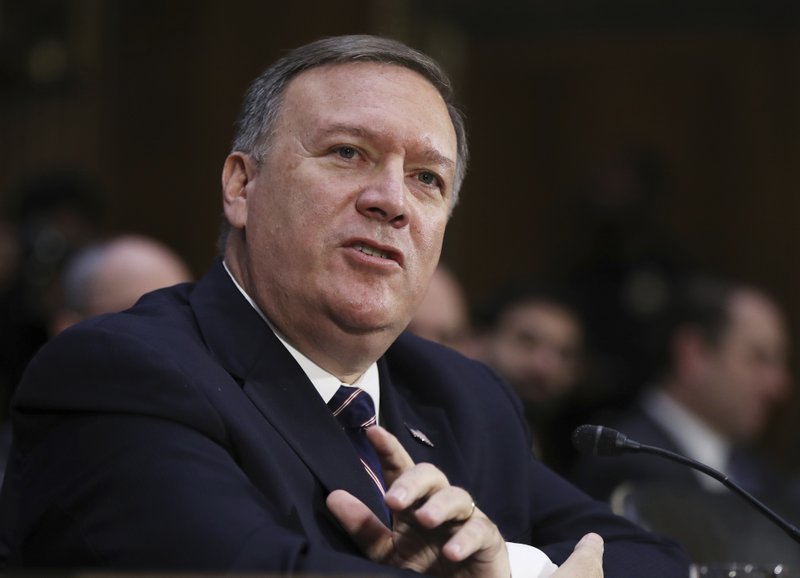
The Senate is on track to confirm President Donald Trump‘s pick to run the CIA and is expected to vote on his nomination Monday evening. Rep. Mike Pompeo, a conservative Republican from Kansas and a member of the House intelligence committee, faced a mostly nonconfrontational confirmation hearing on Jan. 12. Senate Republicans had hoped to vote on Pompeo’s nomination Friday, after Trump’s inauguration. But Democrats succeeded in stalling action until they could debate it on Monday. Sens. Ron Wyden of Oregon, Richard Blumenthal of Connecticut and Patrick Leahy of Vermont objected to what they said was a “rushed confirmation” and demanded more time for Pompeo’s nomination to be “vetted, questioned and debated.” If confirmed, Pompeo would take the helm at the nation’s top spy agency at a critical time for U.S. national security when intelligence — traditionally a nonpartisan issue — has been thrust into the political arena. In its final days, President Barack Obama‘s administration announced intelligence findings that Russia interfered with the 2016 presidential election with the goal of getting Trump elected. Trump himself has denied most of the assessment, though eventually conceded Russia was behind the hacking of Democratic emails during the campaign. One of Trump’s first stops as president was at the CIA’s headquarters in Northern Virginia on Saturday where he made a speech that focused more on falsely accusing the media of lying about how many people attended his inauguration than on the role the CIA plays protecting the U.S. Standing in front of a memorial for fallen CIA agents, Trump assured intelligence officials, “I am so behind you.” He made no mention of his repeated criticism of the intelligence agencies following the election, including his public challenges of their high-confidence assessment that Russia meddled in the White House race to help him win. Obama’s CIA director, John Brennan, said Trump “should be ashamed of himself” for his behavior at CIA headquarters. Wyden, one of the senators who fought to delay a vote on Pompeo, said the congressman has been inconsistent in his statements about Russia’s involvement in the 2016 election. In written responses to questions from the Senate, on Jan. 3, Pompeo said that intelligence agency assessments should be taken seriously. After Trump conceded Russia was behind the campaign hacks, Pompeo on Jan. 12 told the Senate intelligence committee that the assessment was “solid.” He enrolled as a teenager at the U.S. Military Academy at West Point, New York, and graduated first in his class in 1986. He served in the Army at a time when the Soviet Union was America’s No. 1 adversary. Republished with permission of The Associated Press.
CIA publishes guidelines for handling Americans’ info
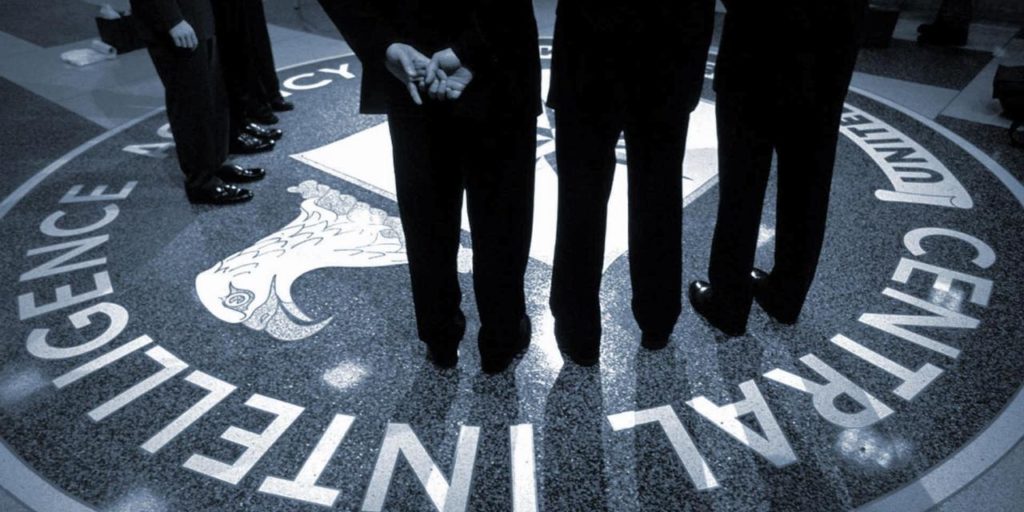
Two days before Donald Trump takes office, the CIA on Wednesday published for the first time its guidelines for how it collects, stores, searches and shares information about Americans. New rules put limits on those who can search it and require they give a reason. While some of the policies haven’t been updated since 1982, others have been changed, reflecting radical developments in technology over the past three decades and the CIA’s effort to be more transparent and protect Americans’ privacy and civil liberties, the spy agency said. The changes will go into effect on March 18. The revised, unclassified guidelines have been in the works for years, CIA General Counsel Caroline Krass said. But the timing of the announcement, shortly before Trump’s inauguration, suggests officials prioritized their completion before President Barack Obama left office. The incoming Trump administration could undo the changes, though doing so would likely be a complicated and time-consuming process. “This is a significant step for us,” Krass told reporters. The CIA operates under a 1981 presidential order that is not overseen by the U.S. courts. The agency focuses its spying outside the U.S., but sometimes it inadvertently collects information on Americans. The new guidelines impose a five-year time limit for how long the agency can hold onto certain information on Americans that has not been reviewed or evaluated. There is also a new 25-year time limit for when it has to purge routine information, such as foreign business records, that have not been reviewed. Also new: policies regulating which employees can access this type of information, and a system that creates a digital trail of all who search for such data and why. These activities will be subject to occasional audits, the agency said. “These rules lack basic privacy protections for Americans. They allow the CIA to collect communications in bulk, to retain that information in CIA databases for years, and to comb through it for the personal data of individual Americans,” said Patrick Toomey, an attorney with the American Civil Liberties Union, which has been critical of the U.S. intelligence agencies’ collection authorities and oversight. “History shows that warrantless surveillance powers can easily be abused, and these procedures do not go nearly far enough.” Parts of the previous guidelines were released in 2015 in response to a public records request, though some sections were blacked out for security reasons. This is the first time the agency has made all of its guidelines visible to the public. Advancements in technology mean there is more “incidental” collection of Americans’ communications, said Ben Huebner, the CIA’s privacy and civil liberties officer. The CIA can collect so much information at a time that it is sometimes impossible to review all information quickly. Trump has said he wants to expand U.S. surveillance authorities to fight terrorism. “But it is not as easy as snapping the fingers or a stroke of the pen,” said Susan Hennessey, a fellow at the Brookings Institution who formerly worked in the National Security Agency’s general counsel’s office. “It is a much more complex process.” Attorney General Loretta Lynch signed the new guidelines Tuesday. CIA Director John Brennan signed them Jan. 10. Republished with permission of The Associated Press.


